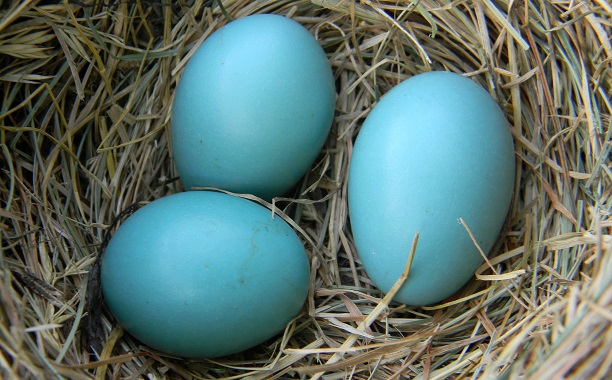3D printing makes yet another contribution to science with the development of artificial eggs employed by scientists in a study which examined the egg-rejection behavior of wild birds.
In the study, which was published in the the computer science journal PeerJ, researchers successfully manufactured an artificial brown-headed cowbird egg which was accepted by American robins.
The brown-headed cowbird is a parasitic brooder which leaves its eggs in the nests of robins. Robins will then either reject the egg or raise it as their own — often to the detriment of their own, offspring. This evolutionary relationship has provoked the question within the scientific community of “why birds reject certain eggs?”
The study notes that since Nikolaas Tinbergen’s study using painted eggs to test the viability of foreign eggs won a Nobel-prize in 1963, scientists have been scratching their heads while wondering just what the criteria for successful parasitic offspring is.
The study found that the problem of hand crafting the eggs, or casting and painting them, revolves around the limitations of exact replication. Subsequently, it proved difficult for researchers to glean consistent results.
The researchers behind the study employed 3D printing technology to print the eggs which were accepted by American Robins. The printed eggs were not robin’s eggs, instead they were brown-headed cowbird eggs, however, the Robins accepted them nonetheless.
The test was conducted in part as an attempt to determine whether the size, shape, weight or color of the eggs had any relevance when it came to tricking the robins into incubating the eggs.
Using the Blender Foundation’s open-source software to design the three-dimensional models, the researchers were able to create viable cowbird egg shell replicas out of Acrylonitrile butadiene styrene. The shells were then, according the the published study, filled with water to “replicate weights and thermodynamic properties of similarly sized natural eggs.”
The purpose of the study was to determine what it is exactly that host birds are looking for when checking their eggs. Is it their size, shape, color or texture? Brown-headed cowbirds have evolved to secretly imbed their eggs in the nests of robins, while robins have been evolving to identify such imposter eggs.
Recent advances in three-dimensional printing have been splattered across headlines in recent times. These days, everything from synthetic organs to bird beaks can now be made with a 3D printer.
The need for these 3D printed eggs is a practical one as “it is less prone to human error and allows precise and controlled manipulation of one, or several, egg traits, including shape, weight and texture,” according the study’s authors.
Where studies using real cowbird eggs once reflected a high number of rejections by robins, the recently published study employing 3D models saw a much higher rate of success while helping researchers eliminate some of the previously proposed variables.
More tests must be conducted in order to determine exactly what the criteria is when it comes to robins identifying the eggs of brown-headed cowbirds in their nests. But with the opportunity for uniformity in studies moving forward, researchers are confident that the answers will come materialize.
The human element has had a long history of mucking up scientific attempts at eliminating variables. Yet as we deploy more advanced technology and utilize the epitome of human ingenuity, we are inching ever closer to the answers.
Mark Hauber was quoted by the Washington Post as having said that this new technology will allow for “standardized egg rejection experiments to be conducted throughout the world.” This is an outstanding breakthrough in the scientific community. The ability to print, test, and share our advancements easily and sometimes gratis, will increase our understanding of the natural world.
























